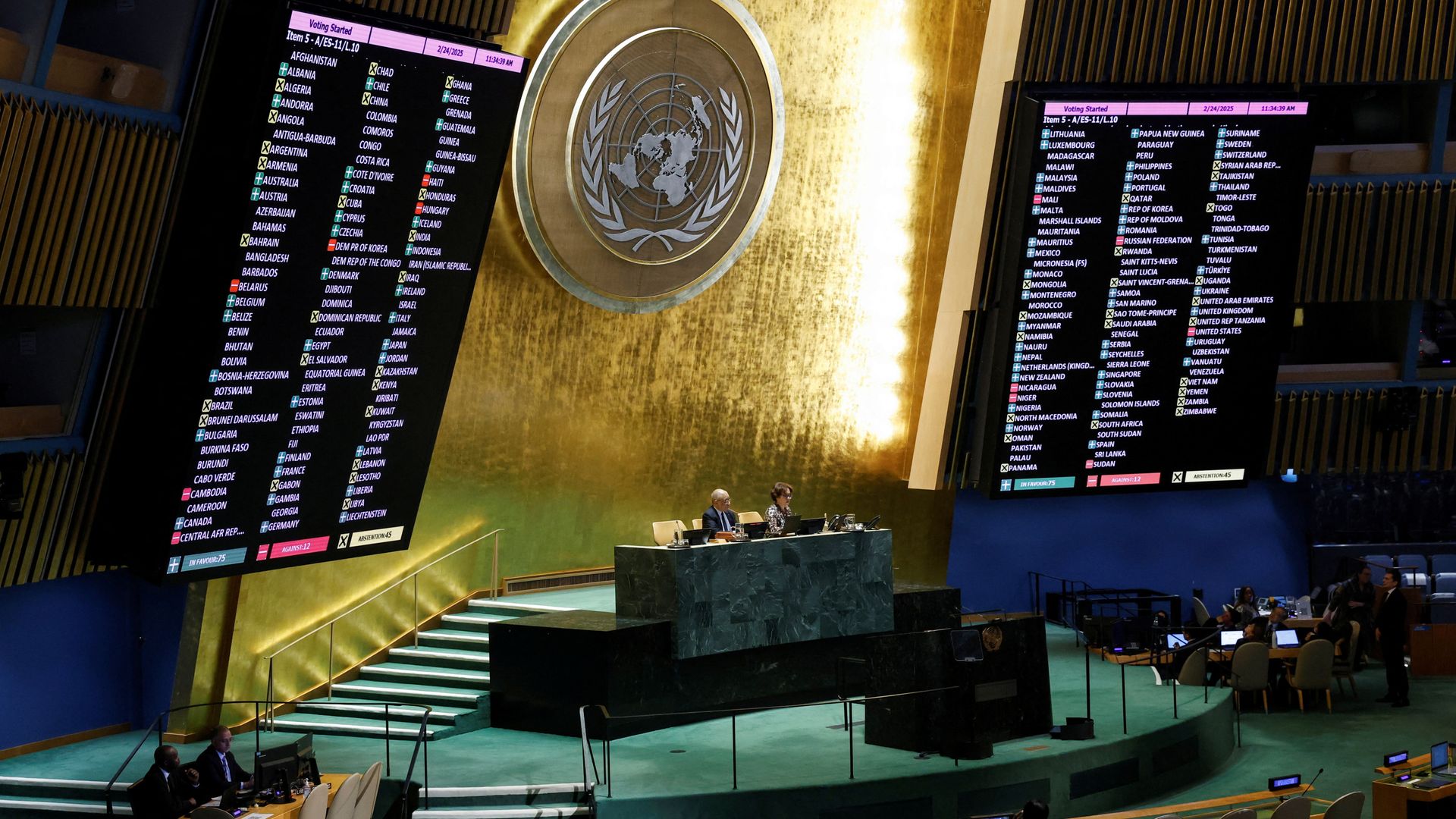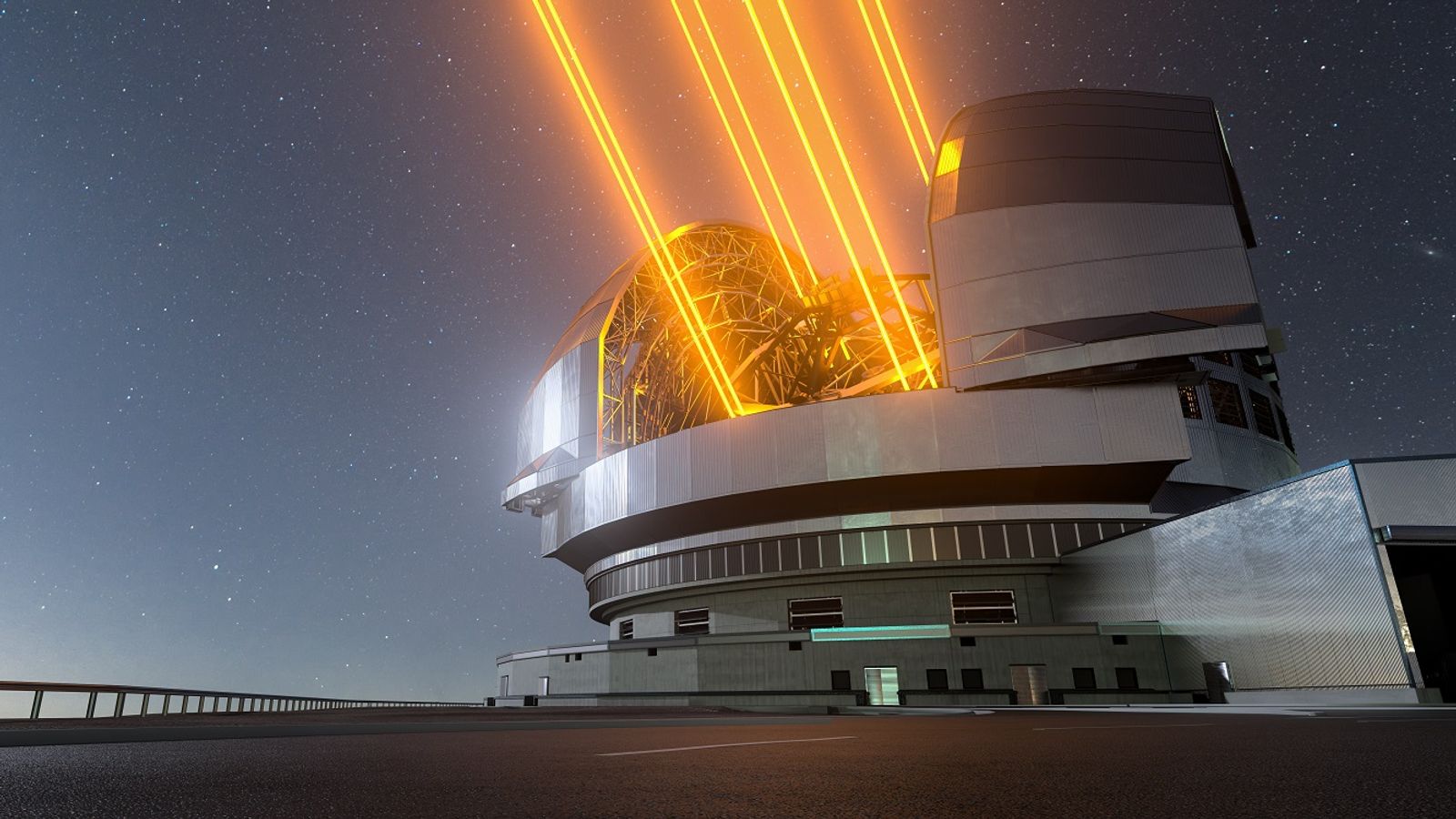The US has abstained from a UN General Assembly vote on a resolution it drafted on the war in Ukraine after the body approved amendments proposed by European countries.
The vote took place on the same day the 193-member assembly approved a competing European-backed resolution from Ukraine which demanded Russia immediately withdraw from the country.
The duelling proposals reflect the tensions that have emerged between the US and Ukraine after Donald Trump suddenly opened negotiations with Russia in a bid to quickly resolve the conflict.
It also underscores the strain in the US’ relationship with Europe over the Trump administration’s decision to engage with Moscow.
Follow latest: Ukraine war live updates
The US-drafted resolution, marking the third anniversary of Russia’s invasion of Ukraine, had called for an end to the conflict but did not mention Moscow’s aggression.
It also made no mention of Ukraine’s territorial integrity.
Ukraine war latest: Trump says Russia is going ‘all-out’ to end war – and Putin ‘would accept peacekeepers in Ukraine’
At least three dead after boat capsizes off New York coast
Roberta Flack dies aged 88
However, it was amended after European nations said that it should include references to Russia’s full-scale invasion of Ukraine and the need for a lasting peace in line with the UN Charter.
It was also amended to include references to Ukraine’s sovereignty.
The amended US-drafted resolution won 93 votes in favour, while 73 states abstained – including the US – and eight – including Russia – voted no.
Meanwhile, there were 93 votes in favour of the Ukraine-backed resolution, while 65 abstained and 18 voted against it.
The UK, France and Germany were among the countries that voted in favour of the Ukraine-backed resolution, which called for a “comprehensive, just and lasting peace in Ukraine”.
The US, Russia, Belarus and North Korea were among those that opposed it.
The outcome marks a setback for the Trump administration in the UN General Assembly, whose resolutions are not legally binding but are seen as a barometer of world opinion.
However, the result also shows some diminished support for Ukraine – as more than 140 nations had voted to condemn Russia’s aggression in previous votes.
The United States had tried to pressure the Ukrainians to withdraw their resolution in favour of its proposal, according to a US official and a European diplomat.
US deputy ambassador Dorothy Shea, meanwhile, said multiple previous UN resolutions condemning Russia and demanding the withdrawal of Russian troops “have failed to stop the war,” which “has now dragged on for far too long and at far too terrible a cost to the people in Ukraine and Russia and beyond”.
“What we need is a resolution marking the commitment from all UN member states to bring a durable end to the war,” Ms Shea said.
Read more:
Analysis: Gift any Russian leader could only dream of is in Putin’s grasp
German chancellor-in-waiting vows to ‘create unity’ in Europe
Grieving Russian mother writes to Putin after teenage son is killed
The world is marking the third anniversary of Russia’s war in Ukraine as America’s allies try to navigate a new reality as Washington’s stance appears to favour Moscow.
European leaders were dismayed last week when they and Ukraine were left out of preliminary talks on ending the conflict.
Mr Trump has called Ukrainian President Volodymyr Zelenskyy a “dictator,” falsely accused Kyiv of starting the war and warned that he “better move fast or he is not going to have a country left”.
Mr Zelenskyy responded by saying the US president was living in a Russian-made “disinformation space”.
Meanwhile, French President Emmanuel Macron is at the White House holding talks with Mr Trump to discuss a peace plan for Ukraine.
At the start of the meeting, Mr Trump told reporters Russian President Vladimir Putin will accept European peacekeepers in Ukraine as part of a potential deal to end the war in the country.
Mr Trump and Mr Macron have been meeting after the pair had earlier joined a call between G7 leaders.
Please use Chrome browser for a more accessible video player
UK Prime Minister Sir Keir Starmer, who will meet with Mr Trump at the White House on Thursday, appeared virtually and said G7 nations should be ready to “take on more risk”.
Canadian Prime Minister Justin Trudeau, who was in Kyiv, called Russia’s aggression a war on “our way of life”.
European Commission president Ursula von der Leyen said Europe’s “first priority” is to strengthen Ukraine’s resistance.
She said this includes speeding up the delivery of weapons and increasing investment, announcing a further €3.5bn (about £3bn) in aid for Ukraine.





